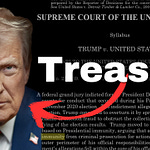We are in the middle of an information war and reality is losing. An administration of grifters and con-artists are about to take the reins of the most powerful democracy in the world and will have free reign to push whatever policies they want. In the next four years RFK Jr, Dr. Oz and Calley Means will be the official source of health information while actual scientists and medical professionals will be exiled to the furthest corners of the internet.
If there was any lesson to learn from the 2024 election it’s that whatever the left’s strategy and rhetoric didn’t work. If we want to win next time we must learn from what the Trump collective did well and change tactics.
In this highly-unfair conversation with the clinical psychologist Jonathan Stea I ask him to put aside his expertise as a science educator and start thinking tactically and strategically. Far too often the pro-science community has either ineffectually poured facts on the conflagration of misinformation or it has called the people who believe misinformation stupid. That campaign did not win enough hearts and minds to flip the election.
Instead, spreading conspiracy theories, attaching silly monikers to opponents, and flooding the internet with cheaply produced propaganda lies won the day. Alex Jones’s Info Wars and Steve Bannon’s War Room created coalitions of like-minded grifters that promoted a toxic soup of ideologies that ultimately prevailed.
It’s worth recognizing that Jones and Bannon were unashamedly on war footing the whole time. Can science do the same?
There are at least a few strategies that the pro-science world can adopt without losing their soul in the process.
The first is to stay away from the knee-jerk tactics that undermine of people who are broadly fighting for the same outcome. The left tends to create versions of purity-tests and expels their own for small issues instead of ignoring disagreements and focusing on broad goals. Coalitions don’t need to promote one single strict ideology, they only need to push the ball forward on the areas where all its member’s agree.
The second is to not give up rhetorical ground to the opposition. For instance, right now influential science communicators who I very much respect like Hank Green and NYT columnist Jamelle Bouie want to draw attention to RFK Jr’s obvious con-artist motivations, his anti-scientific rhetoric, chemophobia and supplement grifting.
That stance is fine if you want to talk only to your own side. But the unfortunate truth is that America sided with MAHA in 2024. And the only way to undermine that base of support is to start at the same place that RFK Jr won them over in the first place—the common ground that left actually agrees with—that Big Pharma is corrupt, chronic disease is on the rise, the FDA is an albatross, and private health insurance is a disaster.
Those are the actual issues that unite America. RFK Jr rode a popular wave of resentment that had been brewing since the 1910s when private money flooded into the health system. While Big Pharma made many notable scientific achievements, most Americans only felt anxiety when they tried to access the health system. We went bankrupt when insurance failed to cover our bills, we took too many pharmaceutical drugs and generally felt scammed by the system writ-large. These critiques used to be central liberal talking points on the left. The left used to be the ones pointing to a billionaire class taking over access to every vital service.
But somehow Trump and MAHA took over that rhetorical ground and convinced a large portion of the population that they were the ones fighting for the everyman. Meanwhile the pro-science crowd attempted to differentiate themselves by doubling down on their scientific acumen instead. That rhetorical move made the left appear to be on the side of big money and not sensible science. (Incidentally, if you are looking for a book recommendation, Naomi Klein’s Doppelganger makes this point might better than I do.)
In my mind the only way to really combat MAHA is by pulling a page from The Art of War and carefully choosing the ground we want to fight over. If MAHA wants to rail against big money oligarchs who control the health system, agree with them. Add to the conversation that MAHA is funded by those very same big-money oligarchs and Kennedy personally profits from his anti-vaccine stance.
This is an extension of the Yes. . . and rhetoric which is so successful at building up Joe Rogan’s griftoverse pipeline. Only once we identify shared terrain can we start to build a coalition that is actually effective at fighting misinformation. If, instead, we take the alternate stance and simply say that everything coming out of MAHA is bad from it’s inception, not a single person will ever change their mind on it. “No...But” just doesn’t work in a rhetorical war.
This newsletter has taken a bit of a turn from what Jonathan Stea and I actually spoke about in our interview, but hopefully that is a good thing, because it’s still worth watching.












